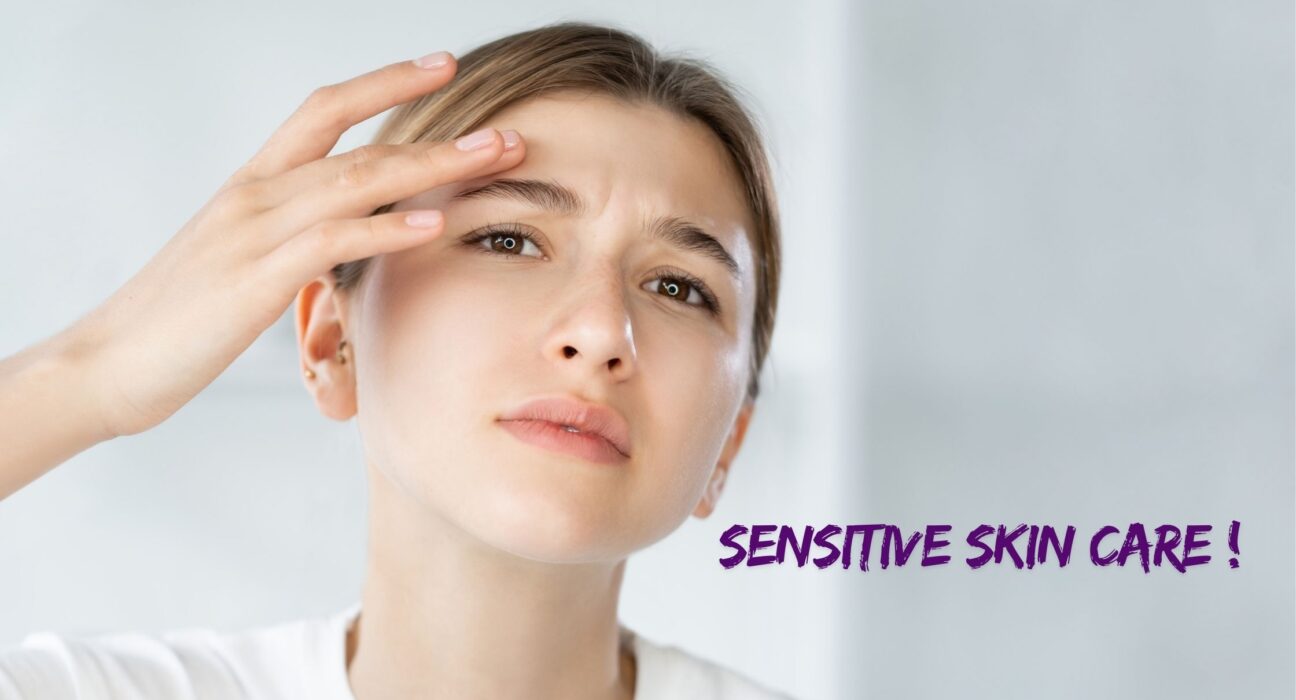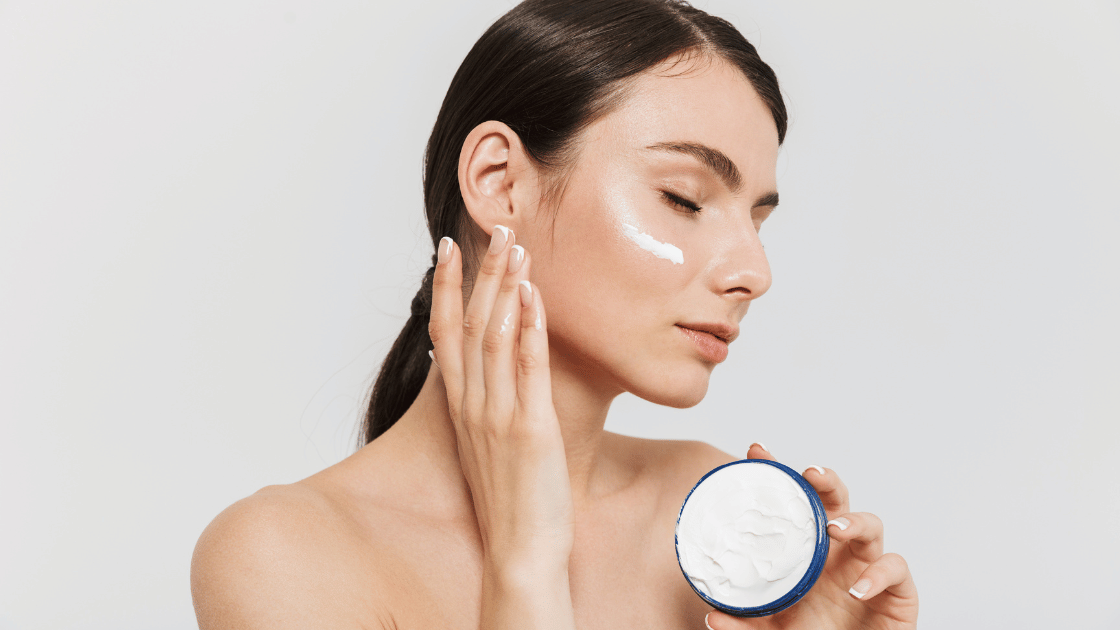Skincare for Sensitive Skin: What to Use and What to Avoid

Navigating a proper sensitive skin care routine can be overwhelming with countless skincare products on the market promising miracles. For individuals with sensitive skin, even the most basic ingredients may trigger irritation, redness, or breakouts. While some people are born with sensitive skin, others may develop it due to environmental factors, skincare habits, or underlying health conditions. Either way, the key to managing sensitive skin lies in understanding its unique needs and adopting a routine that is gentle, non-irritating, and supportive of the skin barrier.
This comprehensive guide is designed to help you understand what sensitive skin really is, how to identify it, what causes it, and most importantly, what products and ingredients are best suited or harmful to it. Whether you’re dealing with occasional flare-ups or chronic discomfort, this blog will walk you through the do’s and don’ts to create a personalized and effective sensitive skin care routine.
What Is Sensitive Skin?
Sensitive skin is not a medical diagnosis, but a term used to describe skin that is more reactive than usual. People with sensitive skin often experience sensations like burning, stinging, tightness, or redness especially when exposed to certain products or environmental triggers.
Sensitive Skin Symptoms
Recognizing the symptoms of sensitive skin is the first step toward appropriate care. Common signs include:
-
Redness or blotchiness
-
Itching or burning sensations
-
Dry, flaky patches
-
A tight feeling after cleansing
-
Reactions to skincare or household products
-
Frequent breakouts from unknown causes
These symptoms can vary from mild to severe and often worsen due to triggers like weather changes, stress, or harsh ingredients.
Causes of Sensitive Skin
Understanding the underlying causes of sensitive skin can help you avoid flare-ups. Common contributors include:
-
Weakened Skin Barrier: A compromised barrier allows irritants to penetrate more easily, triggering inflammation.
-
Environmental Aggressors: Pollution, UV radiation, and extreme weather conditions can lead to sensitivity.
-
Harsh Skincare Products: Products with alcohol, sulfates, or synthetic fragrances often irritate delicate skin.
-
Underlying Skin Conditions: Eczema, rosacea, and dermatitis can cause or mimic sensitive skin.
-
Hormonal Changes: Puberty, pregnancy, or menopause can affect skin sensitivity.
-
Over-exfoliation: Frequent use of scrubs or acids can disrupt the skin’s natural balance.
Sensitive Skin vs Allergic Skin
It’s important to differentiate between sensitive skin vs allergic skin. While both may show similar reactions like redness and itching, their causes differ.
| Sensitive Skin | Allergic Skin |
|---|---|
| Reacts to irritants like harsh cleansers | Reacts to allergens like fragrances or preservatives |
| Immediate discomfort or burning | Delayed reaction, often after multiple exposures |
| Triggered by weather, stress, skincare | Triggered by specific allergenic ingredients |
| Often improves with gentle products | Requires complete avoidance of allergens |
If you’re unsure whether your skin issues stem from sensitivity or an allergy, a dermatologist or allergist can perform a patch test to help identify specific allergens.
How to Take Care of Sensitive Skin
An effective sensitive skin care routine involves being gentle, consistent, and protective of your skin. Here’s how to care for it step by step:
1. Use a Mild, Fragrance-Free Cleanser
Avoid foaming or gel-based cleansers that strip natural oils. Instead, opt for a creamy, sulfate-free cleanser that maintains your skin’s pH.
2. Moisturize Immediately After Cleansing
Hydration is critical for maintaining a healthy skin barrier. Look for moisturizers containing ceramides, glycerin, or hyaluronic acid.
3. Protect with SPF Daily
Sun exposure can worsen sensitivity and trigger inflammation. Choose a mineral sunscreen with zinc oxide or titanium dioxide, which are less irritating than chemical filters.
4. Avoid Over-Exfoliating
Exfoliate only 1–2 times a week with very gentle products. Avoid physical scrubs and choose low-concentration chemical exfoliants like lactic acid.
5. Choose Simple Ingredient Lists
Products with fewer ingredients are less likely to irritate the skin. Stick to trusted, dermatologist-tested formulas.
What to Avoid in Sensitive Skin Care
Managing sensitive skin treatment isn’t just about what to use—it’s also about knowing what to avoid. Here are some major no-nos:
1. Fragrance and Essential Oils
Artificial fragrance and even natural essential oils like lavender or citrus can irritate sensitive skin.
2. Alcohol-Based Products
Alcohols like ethanol and denatured alcohol dry out the skin and can lead to barrier damage.
3. Harsh Exfoliants and Scrubs
Physical exfoliants like walnut shells or microbeads can cause microtears in the skin, increasing inflammation.
4. Sulfates
Common in foaming cleansers, sulfates can strip away essential oils and worsen dryness.
5. High-Strength Actives
Ingredients like retinoids or high percentages of acids (AHAs, BHAs) should be used with extreme caution or under professional guidance.
How to Treat Sensitive Skin: Dos and Don’ts
Do:
-
Patch test new products for 48 hours
-
Use lukewarm water instead of hot water
-
Pat skin dry with a soft towel—don’t rub
-
Apply products in a gentle, upward motion
-
Opt for hypoallergenic products
Don’t:
-
Layer too many products
-
Switch products frequently
-
Use expired cosmetics
-
Neglect sun protection
-
Assume “natural” always means safe
Natural Remedies for Sensitive Skin
When considering natural remedies for sensitive skin, always proceed cautiously. While many ingredients are soothing, not all “natural” products are safe for reactive skin.
1. Aloe Vera Gel
Known for its cooling and anti-inflammatory effects, aloe vera helps soothe redness and itching. Always use pure, fragrance-free aloe gel.
2. Colloidal Oatmeal
This ingredient calms inflammation and strengthens the skin barrier. It’s especially effective in masks or soothing baths.
3. Chamomile Extract
Chamomile has anti-inflammatory and antioxidant properties, ideal for reducing irritation.
4. Cucumber Juice
Cucumber is hydrating and contains antioxidants that refresh the skin.
5. Honey
Raw honey has antibacterial and healing benefits and is suitable for DIY masks.
Caution: Always patch test before trying home remedies and consult a dermatologist for chronic issues.
Skincare Routine Example for Sensitive Skin
Here’s a sample daily sensitive skin care routine for both morning and evening:
Morning Routine
-
Cleanser: Gentle, fragrance-free cleanser
-
Toner (optional): Alcohol-free, hydrating toner
-
Serum: Niacinamide (anti-inflammatory and barrier-supporting)
-
Moisturizer: Lightweight cream with ceramides
-
Sunscreen: Mineral SPF 30 or higher
Night Routine
-
Cleanser: Same as morning
-
Moisturizer: Richer night cream or balm
-
Treatment (2x/week): Calming mask or mild exfoliation with lactic acid
Sensitive Skin in Different Seasons
-
Summer: Increase hydration and sun protection. Avoid sweating with clogged pores.
-
Winter: Use heavier moisturizers and reduce exfoliation to prevent flaking.
-
Monsoon: Keep skin clean and dry to avoid fungal infections or breakouts.
-
Spring/Fall: Adjust products gradually as the weather changes.
When to See a Dermatologist
If your sensitive skin doesn’t improve despite gentle care, or if you experience severe symptoms like oozing, bleeding, or persistent rashes, consult a dermatologist. Medical treatment may be needed to address conditions like:
-
Eczema
-
Rosacea
-
Contact dermatitis
Product Labels to Look For
Choose products labeled:
-
“For sensitive skin”
-
“Fragrance-free”
-
“Non-comedogenic”
-
“Hypoallergenic”
-
“Dermatologist-tested”
Avoid products that list alcohol, menthol, fragrance, or citrus oils in the top five ingredients.
Final Thoughts
Managing sensitive skin can be a journey of trial and error, but with the right knowledge and care, it’s entirely possible to maintain healthy, calm, and glowing skin. Stick to a consistent sensitive skin care routine, be mindful of product labels, and always listen to your skin’s signals. Whether you’re using natural remedies or dermatologically-approved solutions, the best care is gentle, simple, and protective.








